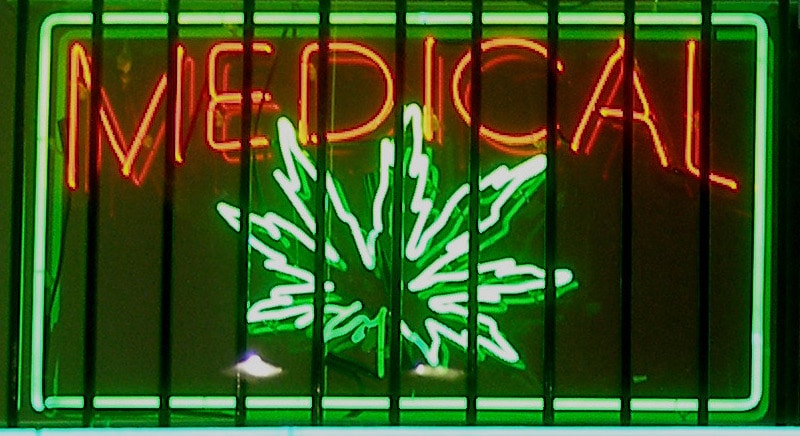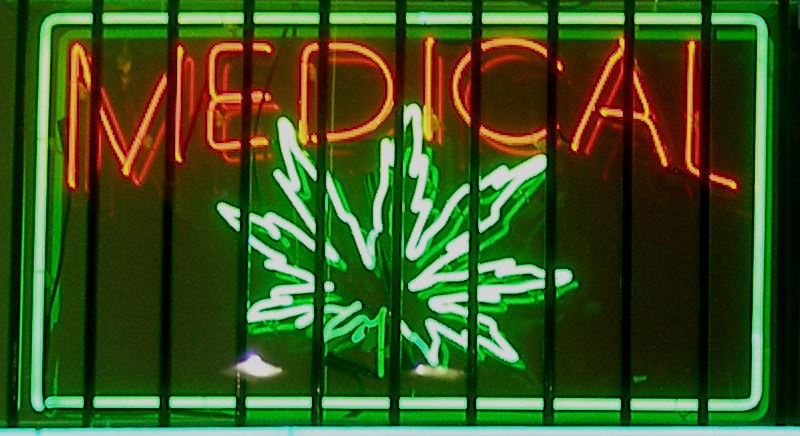
People living in some western portions of America with liberalized medical marijuana laws have some extra protection from the United States government prosecuting them for violations of US marijuana laws thanks to a decision issued Tuesday by the Ninth US Circuit Court of Appeals. However, only congressional action can promptly ensure such protection is provided to people countrywide.
The appeals court’s United States v. McIntosh ruling decides ten consolidated appeals and petitions for writs of mandamus pursued by appellants who have been indicted for violating the US Controlled Substances Act (CSA). The appellants argue that a prohibition on funding US prosecutions related to medical marijuana should require the dismissal of their indictments and the stopping of their prosecutions. Looking at appropriations legislation for the Department of Justice (DOJ) enacted in 2014 and 2015, the court concludes that a provision of the enacted appropriations bills, which the court refers to as section 542 based on the provision’s location in the 2015 appropriations, “prohibits DOJ from spending funds from relevant appropriations acts for the prosecution of individuals who engage in conduct permitted by the State Medical Marijuana Laws and who fully complied with such laws.”
The result for the appellants, the court explains in its decision, is that, if the DOJ decides to continue with prosecution, the appellants “are entitled to evidentiary hearings to determine whether their conduct was completely authorized by state law.” If the conduct was authorized, then the prosecution must end. The court further clarifies that the matter to be decided in such a hearing is if the actions of the appellants “strictly comply with all relevant conditions imposed by state law on the use, distribution, possession, and cultivation of medical marijuana.”
The Ninth Circuit decision provides significant protection against prosecutions. The decision may result in prosecutions of some or all of the appellants being dropped. It will certainly discourage new US government prosecutions of individuals who appear to be in compliance with state medical marijuana laws.
The court’s decision politely chides the US legislative branch by saying the statutory funding prohibition “is not a model of clarity.” This is something I pointed out in a May of 2014 article after the section 542-type medical marijuana prosecution funding prohibition, as well as a similar prosecution funding prohibition related to industrial hemp, first passed in the US House of Representatives as amendments to a DOJ appropriations bill. I wrote then that, “[b]ecause of House amendment rules, the wording of the amendments could not state as clearly as could stand-alone legislation that the US government is prohibited in a state from enforcing US laws that prohibit or punish activities related to medical marijuana and hemp that are in compliance with the state’s law.”
It is routine for House rules to be strictly interpreted against amendments that leadership disfavors in order to prevent consideration of such amendment on the House floor. Such amendments are often barred from consideration for reasons including that they may require someone to make a determination that he does not already have to make under the law. Likely in an effort to prevent the amendment from being thrown out, it ended up with rather strange language saying that none of the funds the appropriations act makes available to the DOJ may be used in the listed states that have adopted medical marijuana liberalization “to prevent such States from implementing their own State laws that authorize the use, distribution, possession, or cultivation of medical marijuana.”
The medical marijuana amendment was offered year after year during consideration of the DOJ appropriations bill, with additions periodically made to the list of states (and territories and the District of Columbia) that over time liberalized their medical marijuana laws. Over the years, the amendment gained larger vote totals until ultimately it obtained majority support.
Though amendment supporters surely would have liked to have improved the amendment language to make it crystal-clear that it barred the prosecution of people for actions in compliance with state medical marijuana laws, such a revised amendment would most assuredly be ruled out of order. This is especially likely after the amendment support had grown so that offering the amendment became more about actually changing the law than about making a statement.
The DOJ advanced before the Ninth Circuit an interpretation of the amendment language that says the amendment imposes no restriction on US government prosecutions of individuals for private actions violating US drug laws. If accepted, the DOJ’s interpretation would allow the DOJ to continue prosecutions of many US medical marijuana offenses without concern about state medical marijuana laws.
The argument for the DOJ’s interpretation is rather persuasive. Here is how the argument goes: The DOJ is not preventing states from adopting medical marijuana laws, prohibiting state medical marijuana regulatory bodies from operating, or conscripting state or local police to arrest individuals for taking actions that comply with state medical marijuana laws. Rather, the US government is just enforcing its own laws that are inconsistent with state medical marijuana laws. In short, the states have fully implemented their medical marijuana unimpeded by the DOJ; the DOJ just continues to enforce distinct US drug laws.
The Ninth Circuit, however, rejected the DOJ interpretation. Instead, the court concluded the following:
In light of the ordinary meaning of the terms of § 542 and the relationship between the relevant federal and state laws, we consider whether a superior authority, which prohibits certain conduct, can prevent a subordinate authority from implementing a rule that officially permits such conduct by punishing individuals who are engaged in the conduct officially permitted by the lower authority. We conclude that it can.
But, what would the other 11 appeals courts, with jurisdiction over where the rest of Americans live, say? What would the US Supreme Court say? The answers to those questions are not clear. While the Ninth Circuit has presented its determination of the amendment’s effect, the rather reasonable alternative interpretation offered by the DOJ that the amendment has a more limited effect may be accepted by other courts. Indeed, some courts may conclude the language means yet something else.
Congress members who spoke in floor debates on the amendment, both for and against its passage, generally spoke as though they believed the amendment was intended to prevent the US government from prosecuting people who have acted in accord with state medical marijuana laws. But, the Ninth Circuit decision outright rejects looking to such comments by legislators. The decision states that “it is a fundamental principle of appropriations law that we may only consider the text of an appropriations rider, not expressions of intent in legislative history.” Expect other courts to similarly justify an interpretation of the amendment’s meaning based on analysis of the amendment’s text without consideration of legislative history.
Congress can prevent a drawn-out process of US district and appeals courts reaching different conclusions regarding the effect of the medical marijuana amendment and the Supreme Court then ultimately settling the matter. The amendment has been included in DOJ appropriations legislation and become law multiple times. Also, it has always seemed clear from the amendment debates that Congress members viewed the amendment’s restriction on US government action related to medical marijuana to be as broad as what the Ninth Circuit concluded in its decision.
How about the US House and Senate pass a stand-alone, unambiguous statute barring the US government from prosecuting anyone for taking actions in compliance with state medical marijuana laws? The Congress has shown that it intends to place at least this much limitation of the DOJ. It should take two weeks tops for such a short, one-topic bill to be approved in the House and Senate, especially given that that action seems in line with the congressional intent for the medical marijuana amendment that has been included in DOJ appropriations. The question is this: Will the congressional leadership allow that intent to be expressed clearly in the law? Then, in the third week, how about the Congress begins serious consideration of ending altogether the US government’s war on marijuana?

